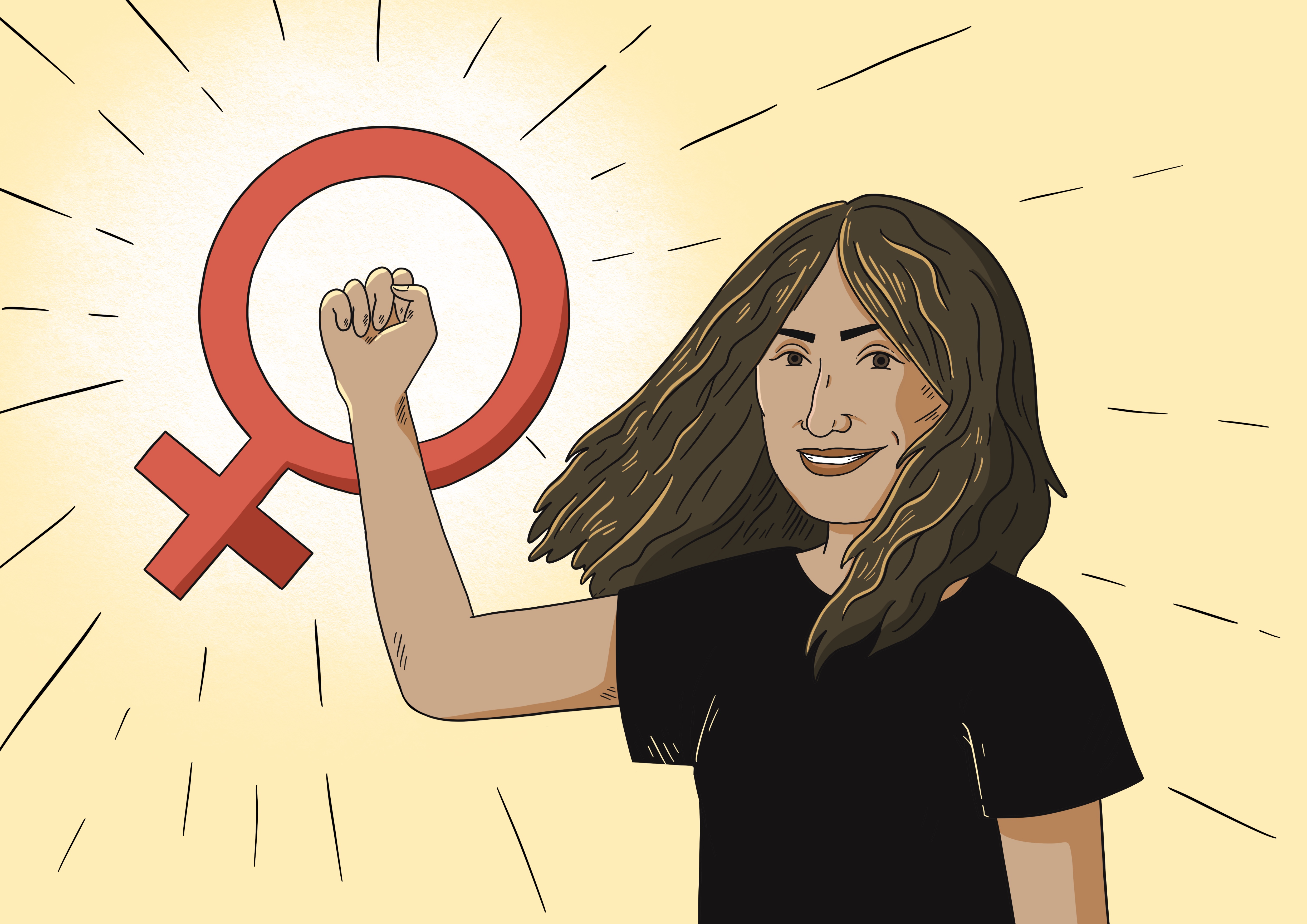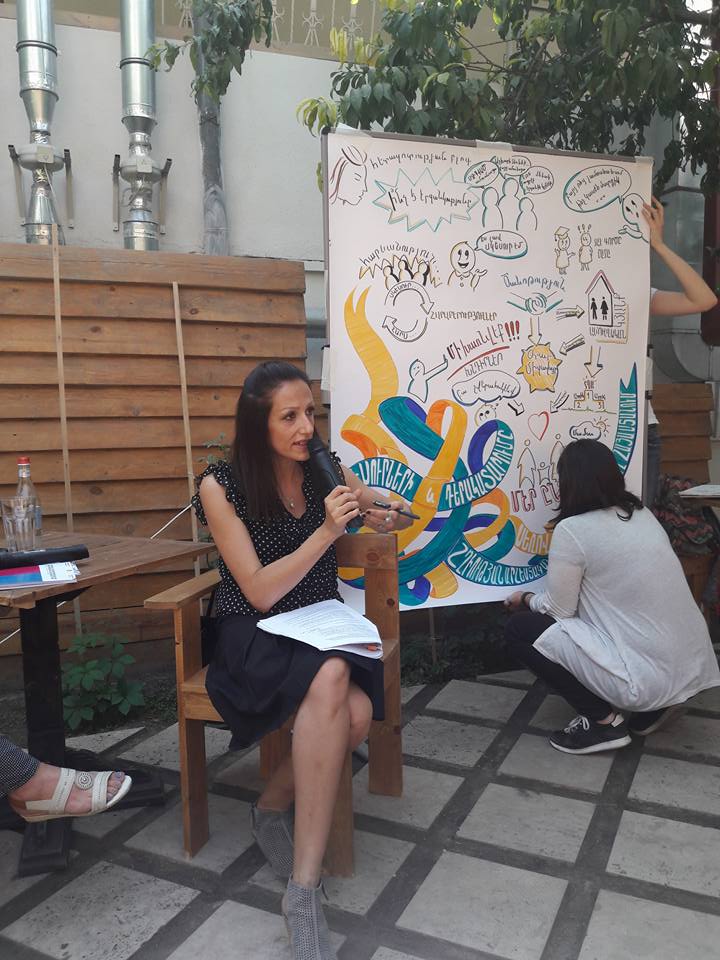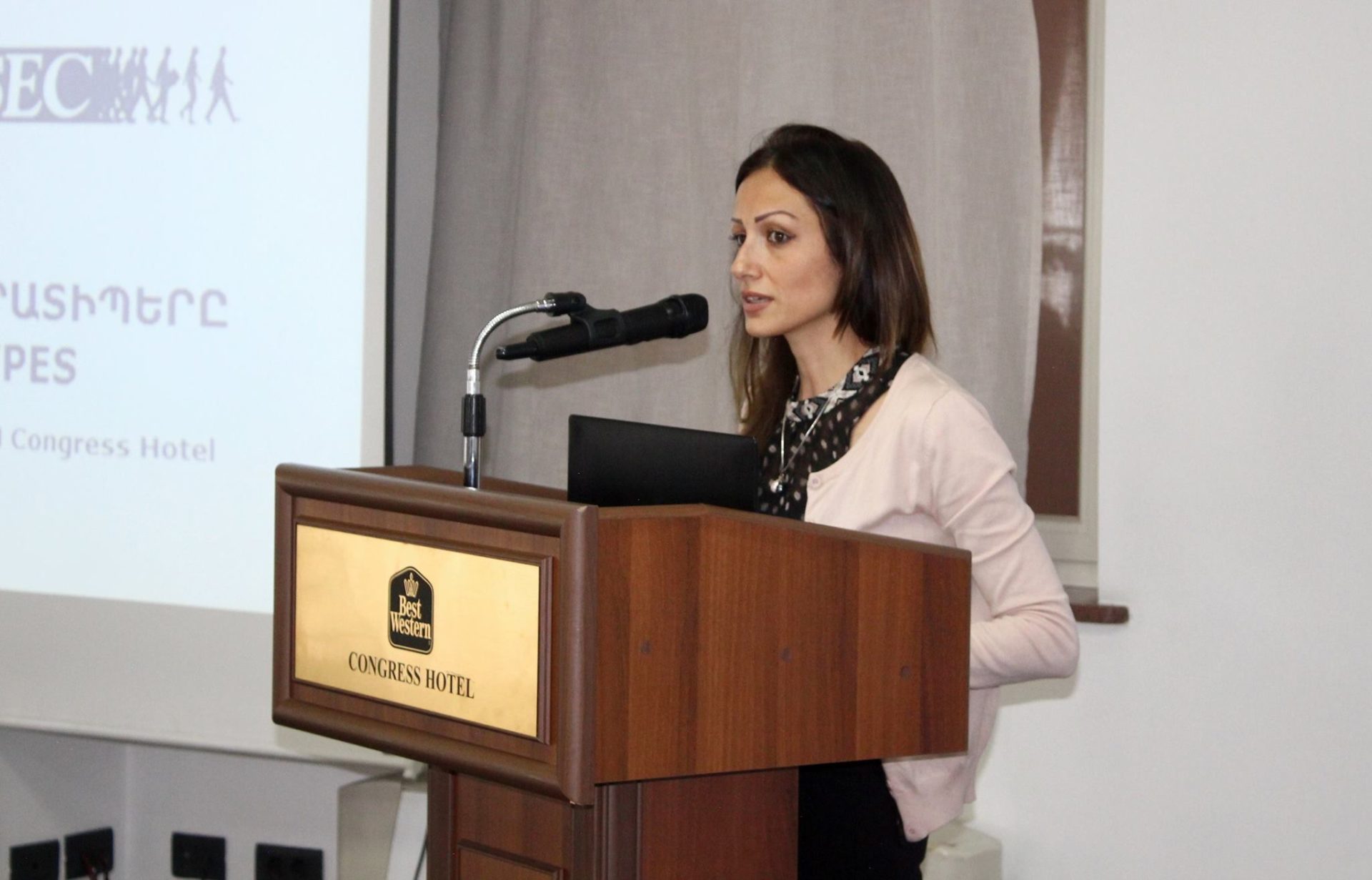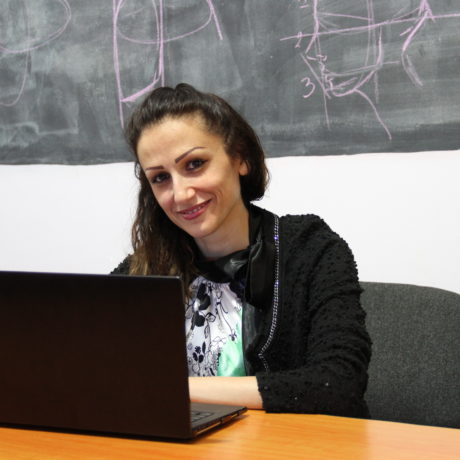Gohar Shahnazaryan
This article is a part of the campaign #12 Women on the Barricades, developed by The Norwegian Helsinki Committee in collaboration with illustrator Jenny Jordahl. We present 12 portraits of women standing on the barricades for other women, focusing on the greatest human rights challenges facing women in Europe today – and what needs to be done to overcome them. Read about the 11 other women on www.nhc.no/en/12womenonthebarricades
In a small and beautiful country with a long and powerful history, the Armenian people made history in 2018. The 2018 Velvet revolution in Armenia, a revolution known as one of “love and solidarity”, people proved to the world that democracy lies in the hands of the people.
But people in this context, does still not mean all people, or every person. Post-revolutionary Armenia has demonstrated little will to tackle problems faced by women, LGBTI and other vulnerable groups, regardless of the important role they played during the revolution itself.
As simple as that
“Women are entitled to the same human rights as men and they should be informed about that”. This was Gohar Shahnazaryan’s driving force when she, in 2003, established the “Women Resource Centre” (WRC) in Armenia. Since then, the WRC has become the first resource center in Armenia for young women, covering a range of topics from women’s social and political empowerment, reproductive and sexual rights, to sexual violence and women’s role in conflict resolution and peace building.
It was a simple doctrine, but it was about to meet massive resistance in a conservative and patriarchal Armenia. First, by a regime estranged to democratic developments in general. Secondly, by a political elite, claiming commitment to a new and democratic agenda.
No gender revolution
In 2018, women and women’s rights activists played a key role in the Velvet revolution. Looking at the political and social agenda of post-revolutionary Armenia, this may seem hard to believe.
Processes that would initiate real and significant change – which would change the traditional order of things, were lacking. Feminism and gender issues remain quite challenging topics in Armenia’s everyday reality. Misperceptions and negative attitudes are still common when talking about gender, women’s rights and women’s movement. Rather than being associated with equal access to human rights, democratic development and progress, these concepts raise notions of perversion, paedophilia and bestiality.
“Being a female human rights defender in such an atmosphere means that we must fight for other women’s basic freedoms, and at the same time, combat violence against ourselves. This has not changed with the revolution”, Gohar explains.
“Traitors of the Nation”
Gohar and her colleagues have been labelled as “traitors of the nation”, as “threats to Armenian values” and “destroyers of families” only because they do their utmost to enhance women’s ability to protect their own rights. There is no support from state institutions, including the police.
“Because we are women, we are perceived as easy targets. Because we are outspoken about sexual violence against women, about reproductive rights and LGBTI rights, things have become quite difficult for us. People are encouraged to be violent against us, we receive death threats and hate speech flourish around us. But we will not give up”, says Gohar.
Being a female human rights defender in such an atmosphere means that we have to fight for other women’s basic freedoms, and at the same time, combat violence against ourselves.
Gohar Shahnazaryan
WRC initiated the development of “Young Women’s Network”, a network consisting of mainly young women from the different regions of Armenia. The idea of the network is to develop and promote social activism among young women and empower them to make feminist interventions in their respective communities. The WRC believes that only active engagement can bring actual changes in Armenia.
These are the main values Gohar tries to teach to her young students at the Yerevan State University, hoping they will contribute to a better future for women in Armenia.



